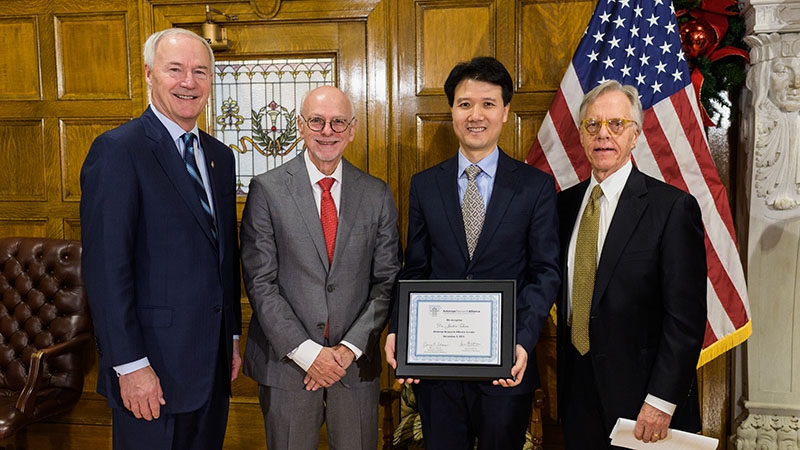
Data science professor Justin Zhan is collaborating with University of Arkansas for Medical Sciences professors David Ussery and Xuming Zhang to develop accurate predictions of genomic variation trends of coronavirus.
Their work will help public officials monitor the outbreak and adapt to changes. It could also provide valuable information for the design of vaccines.
"To control and prevent COVID-19, public officials need highly robust models for predicting how and where the virus will spread," Zhan said. "This project will assist that effort and lead to better detection and prevention strategies. We think it could have colossal social and economic impacts."
 Zhan's research focuses on big data, blockchain technologies, information assurance and biomedical informatics. For this project, he will use a novel, blockchain-based artificial intelligence system, which integrates information on the relationships of biological systems, to predict trends and changes as the coronavirus spreads. The system will be evaluated and tested through various coronavirus benchmark datasets.
Zhan's research focuses on big data, blockchain technologies, information assurance and biomedical informatics. For this project, he will use a novel, blockchain-based artificial intelligence system, which integrates information on the relationships of biological systems, to predict trends and changes as the coronavirus spreads. The system will be evaluated and tested through various coronavirus benchmark datasets.
Ussery and Zhang will provide expertise in the areas of bioinformatics, microbiology and immunology.
A blockchain is a growing list of records, called blocks, that are linked using cryptography. Each block contains a cryptographic hash of the previous block, a timestamp, and transaction data generally represented as a Merkle tree. By design, a blockchain is resistant to modification of the data. It is "an open, distributed ledger that can record transactions efficiently and in a verifiable and permanent way. As the fundamental component and functional element of blockchains, Merkle trees allow for efficient and secure verification of large data structures and potentially boundless data sets.
With a large grant from the Army Research Office, Zhan is building a graphics processing unit at the U of A. The unit is a computer cluster for big data research and education.
Justin Zhan and David Ussery are Arkansas Research Alliance scholars.
Topics
Contacts
Office of University Relations, Division of Advancement
University of Arkansas
479-575-5555,